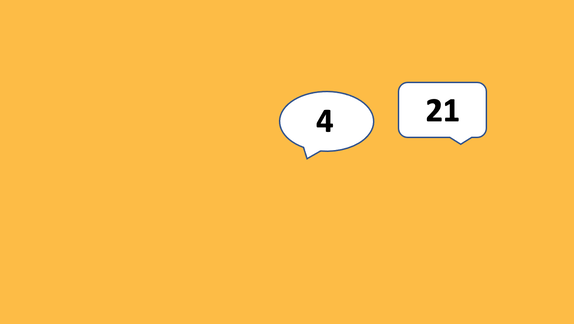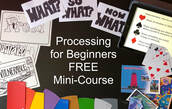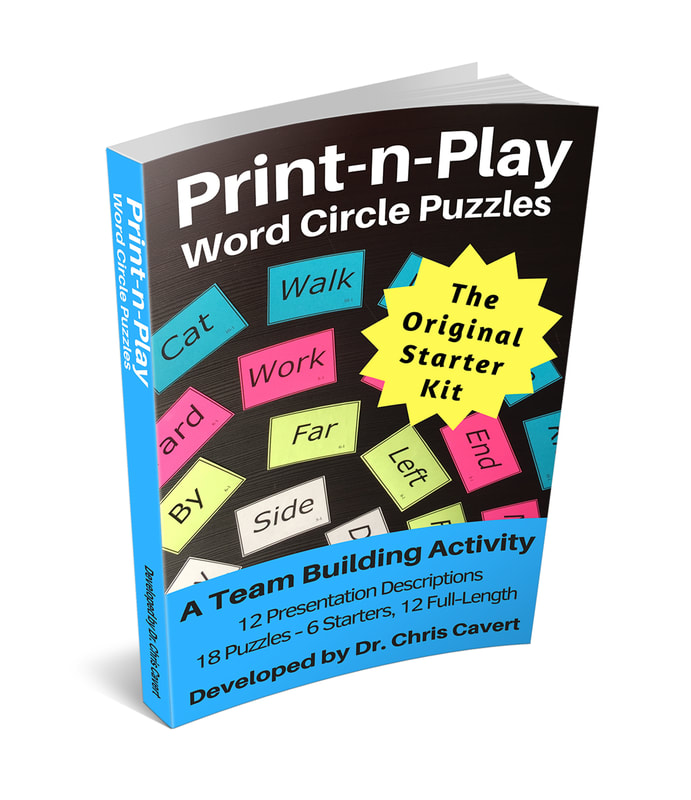My first thought for this energizer was to require some prep with paper and a pen - write out sequential numbers on paper, tear them all out and give each participant a number. Re-considering that the lesson focus was on 'listening' (and, when relying on in-time details, props can be overlooked ahead of time) I thought, What if we didn't use a visual prop to rely on? - listening (and remembering) would certainly be enhanced.
Shortly after I sent out the idea in the FUN Fridays email, I had an opportunity to lead this one with a group of 27 young adults (My prediction is that Verbal Number Exchange will work best with 24 to 50 participants). Here's how I presented the challenge:
DIRECTIONS
Part 1:
- Circle up your group. (I stood in as part of the circle - I had the person to my left start the count, but, of course, you can choose anyone in the group to start.)
- Start with someone and ask them to begin counting off, out loud, sequentially from number one on up to the last person in the group - the group's highest number. (This ended up being the person in the circle standing to my right.)
- Explain to the group that, "In a moment, but not yet..." they are going to mingle (move) around within the group and verbally exchange numbers with five different people.
- Verbally share an example: "If I'm number four, I walk up to someone and say 'four' they tell me, '11' - I'm now 11, they are four. I go up to a different person and say, '11,' they tell me, 'six' - I'm now six." And so on...
- No form of visual communication can be used - holding up fingers, using a smart phone, or writing numbers on paper or white boards - only auditory communication.
- After exchanging numbers with FIVE DIFFERENT PEOPLE participants are required to stop moving (do not get back into a circle). Number exchanges can still take place (other people might not have five exchanges), but a participant must stop moving after s/he makes five exchanges.
- When everyone in the group stops moving, you are then going to give the the 'challenge' directions (Part 2).
Part 2:
- After everyone stops moving, check in with the group to see if everyone has one number in their head. (Answer any questions, if you can, that participants may have.)
- When ready, tell everyone to circle up in numerical order, starting with number one, using the number they currently have in their head. NO MATTER WHAT HAPPENS, circle up using the last number they have in their heads.
- Participants are then free to move around and (only) verbally share their number with others in the group with the ultimate goal of circling back up in numerical order.
- NOTE: If you are presented with some 'confusion' (you'll know it if you see it) during this re-circling, simply state, "Circle up in numerical order with the number you currently have."
- After the circle is formed (everyone has found a spot in the circle), have each person verbally share her/his number, starting with number one (or whatever the lowest number is at the time).
Reflection:
- If the group is able to circle up with each person in the group having a different number, from one to however many, then talk about what led to their success. (Based on the 'Listening' Lesson I programmed, I would talk about the particular instances they had to listen - directions, to each other - and why this led to their success. And, what tends to happen to us - get story examples - when we fail to listen.)
- If the group is unable to circle up with all numbers being represented (which happened to me this first time) - several people ending up with the same number, ask them what led to their outcome and what they want to do differently in order to be 'successful' in the next attempt.
My Reflection:
As I predicted, when developing Verbal Number Exchange, (as noted above), a good percentage of participants shared the same numbers. During the action of Part 2 I was presented with confusion from some of the participants (because they shared the same number with others). I simply said, "Use the number you have to get in order." During this time I starting hearing people deflecting responsibility, sharing why it wasn't their fault because "someone else" gave them the number they had. (Something we got to talk about - whose responsible?)
During the group reflection (after the group settled into a more calm affect - there was a perceptible level of, I'll use the word, shame, around sharing numbers with others), I just asked them, "What happened?" One of the main 'problems' ended up being the interpretation of the directions. It (among other things) showed that people don't always do the wrong thing on purpose, they've simply decoded information differently and then acted on their understanding. (Of course, there was ample opportunity to ask questions about the task before they began - but, everyone 'thought' they knew what to do.)
Now, for me, this was only my first time trying Verbal Number Exchange. Some groups might be able to breeze right through this one - on both attempts. Uncover why they were successful, then move on to the next challenge for more practice. However, other groups, like mine, will run into 'problems' to solve - helping them to get better at working together.
Let us know how this one works out for you. Leave us a Comment!
All the best,
Chris Cavert, Ed.D.







 RSS Feed
RSS Feed